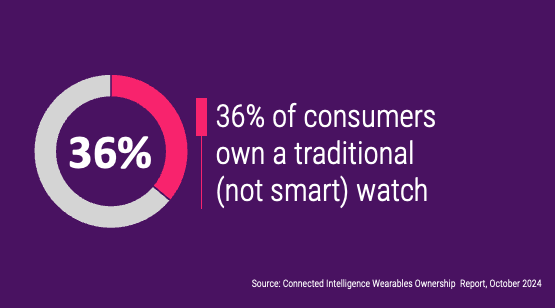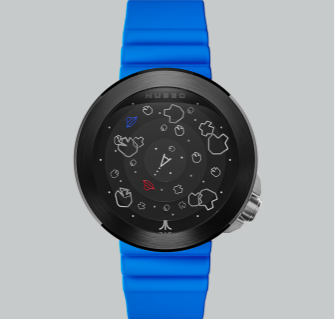
Killing you softly?
Wearables are focused on health and fitness, driving us (hopefully) to exercise more and reap the rewards. So far, so good. But a research study by the University of Notre Dame suggests that smartwatch and fitness bands can contain high levels of toxic “forever chemicals” that are absorbed through the skin. The study looked for evidence of the chemicals in 22 common brands and detected them in 15, at levels higher than is typically seen in consumer goods and clothing. It is worth noting that these chemicals are often added to products such as rain gear as a waterproofing agent, so for smartwatch bands they will help with sweat and dirt build up over time,
The Circana Take:
- Forever chemicals are an increasingly popular topic as consumers become more aware of the potential harm. But, having said that, there has always been a balance between technology’s benefits and the potential harm. Mobile phones, for example, were connected to potential brain tumor growth at one point, while microwaves (back in the day) were rumored to cause cancer. Sales of both products did not see much (if any!) impact due to these health issues. Of course, the fact that we are talking about a health-focused device such as a smartwatch means that awareness and concern may be higher than with these previous examples.
- It is worth noting that we are talking about the strap not the watch itself. As such, consumers typically have options and can replace their current strap if they are concerned.
Pebble 2.0?
Google has open-sourced PebbleOS, the updated version of the original Pebble smartwatch software. And, first to announce plans to build a smartwatch based on the OS is the original Pebble founder, Eric Migicovsky. He wants to create a new smartwatch that will be the spiritual successor to the original Pebble. This could be interesting: the Pebble watch was less focused on health and fitness and more on productivity. As Mr. Migicovsky wrote in a blog, “No one makes a smartwatch with the core set of features I want”.
The Circana Take:
- Sequels are always a gamble, particularly after so many years. The original Pebble had a core following, but that was long before Apple, Samsung and others became serious about the category. Finding a strong niche for a new Pebble could prove to be a challenge.
- But… the argument that “no one makes a smartwatch with the core features I want” is intriguing. We have often commented that smartwatches are too focused on health and fitness while a core target of consumers is looking for more productivity solutions. As a result, the innovations the come with Pebble 2.0 (if the watch ever launches of course) could spur over companies to take a fresh look at what a smartwatch should be.
Dumb but fun
Atari has partnered with watchmaker Nubeo to launch an Asteroids-themed watch. The watch has a multi-layered disc system the reflects the game play of the original game. A pair of UFOs indicate the time in hours and minutes while the spaceship in the center represents the seconds hand via shots it fires. The result is quite a chaotic screen with spinning asteroids on top of everything, but telling the time is almost secondary with a device like this: it’s a fashion statement first. To be clear, this is not a smartwatch, but rather is powered by a “Japanese automatic movement.” There are five color variants of the watch, but Nubeo only made 125 of each variant (priced at $499).

The Circana Take:
- By the time you are reading this, I expect that the watch will be sold out. Sure, it’s not a smartwatch, but it is certainly eye-catching and a conversation starter. And, sometimes, it’s nice to wear a watch because it is just a watch.
- It’s a healthy reminder that the competition for a consumer’s attention is not just against other smartwatch vendors. We have only two wrists that we can load up with tech (or non-tech in this case).
- Of course… this could simply be created as a smartwatch app rather than as physical hardware. But the hardware appears to be the point – and the statement: some consumers just don’t want a smartwatch.